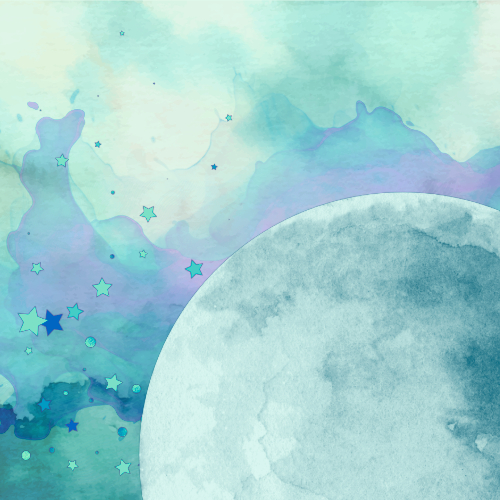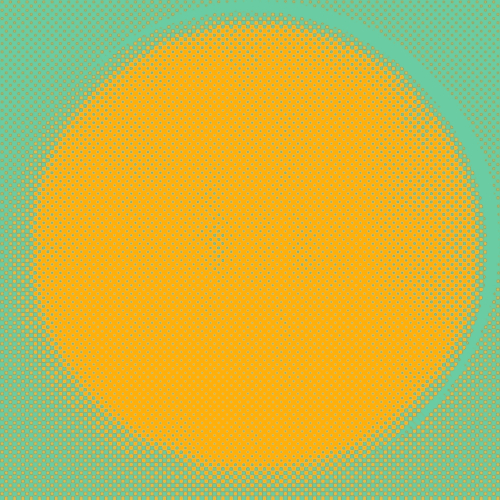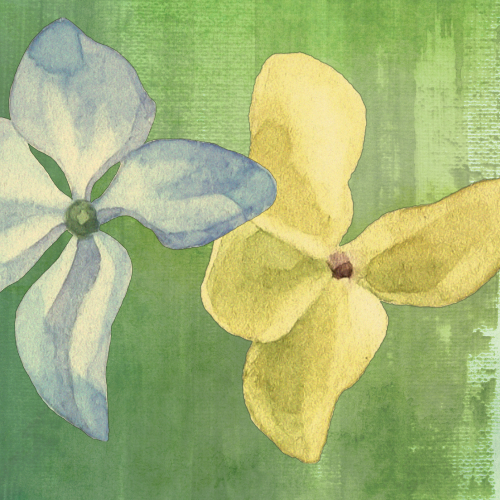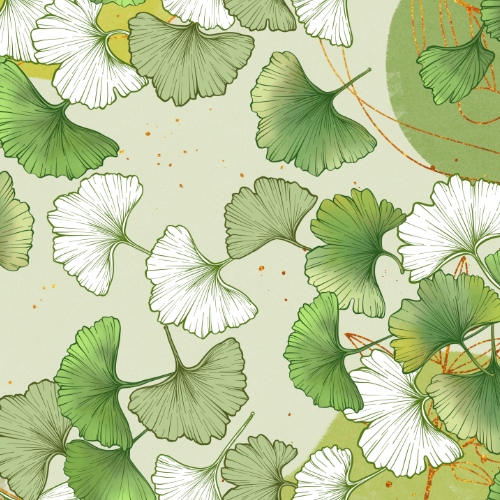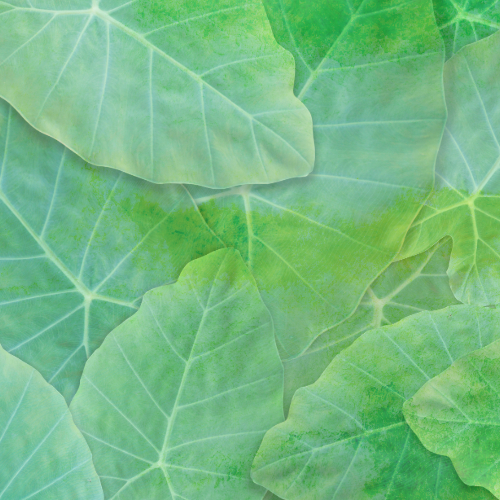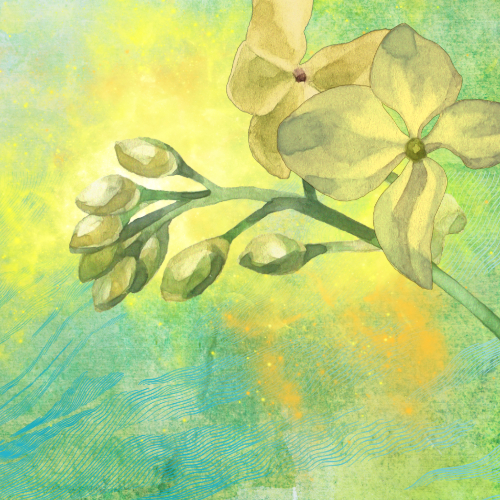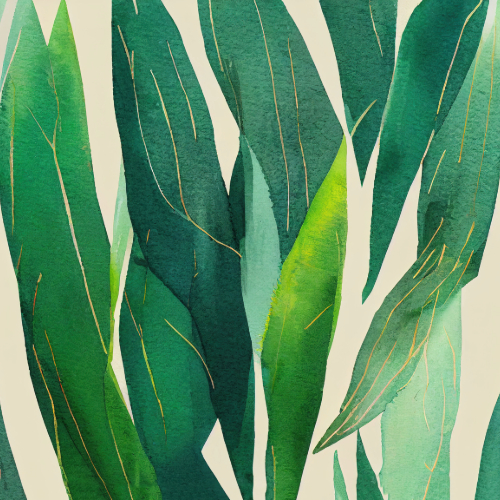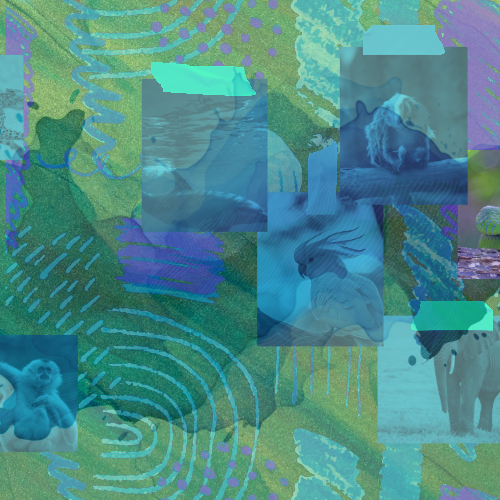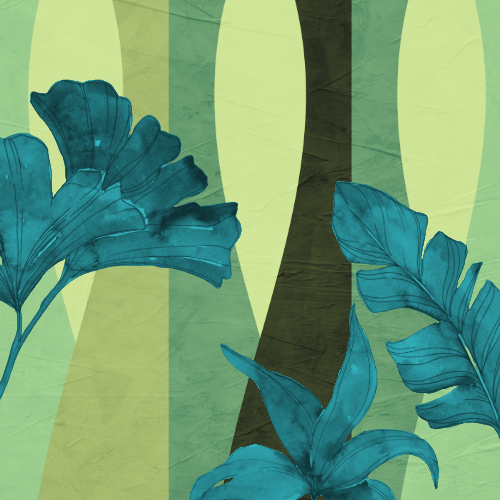1. Lucky Girl
Sleep is pulled from her like a kit from a teat. She hears rather than feels her legs snap out on instinct and away from the warmth of the old horse rugs, up the creaky metal stairs and into the bower at the top of the barn, where she can hear the mice shifting and hiding in the nooks, crannies, cracks,
and smell them too: the brackish stink of prey – nothing gets past her nose – and as she stands in the cool slice of moonlight beaming with indifference on her silky black fur she does not know yet what has woken her, only that she can taste something in the chilled air that is different, electric, alive
but the dream is still there at the front of her mind, steaming like a fresh kill, bits and pieces torn up, slashed, ribbons of memories of thoughts of rememberings from before – before the barn before exile before the dog and the fight and
Jeannette casting her into the cold, the midwinter frozen ground stinging her paws and the wind ripping a gale;
she remembers watching the dog watching her through the window, Christmastime; bright fire and tree lit up with stolen stars; yes, but before all that; she is back in the big house with Jeannette, but Jeannette from a great many suns ago
Jeannette, with a face not yet carved by the years or furred with age; hair the same deep jet as her own coat;
soft skinpaws unmarred by farm work (because in the dream the man was still around to offer his own for it),
Jeannette tracing her paws with one finger, laughing, calling her names,
stinkysillymybabymybabymylittleluckygirl,
blowing patterns right down to the root of her fur with laughter that shot out of her nose; and she being Lucky, realising that she really was a very lucky girl back then, belly full
and held by Jeannette her long hair like a curtain falling all around her- AaaaaAAAAAAHHHHH!!!
a noise like dogscream, breaking the night swiftly as a pheasant neck; with feet a- scramble on the wood Lucky runs, leaving the memory behind because there is work to be done, things to be seen, the dream can wait because on this particular night there is something of a crackle in the air that says ACTION DANGER MOVE MOVE MOVE and she has never been any good at ignoring excitement, driven towards the breathless hurtling race towards something, whatever it is, whoever it is – oh she hopes it is a who, hasn’t had one of those in such a long time, and a longer time still she has heard such melody, almost forgot what it was like to listen; she recalls nights the barn was alight with sound and smell
she rounds the corner thunders across the floorboards, scattering dust and mouse pellets in her wake; when she has the freedom to move like this she knows now why Jeannette gave her the name she did, hears the clicky sound of it falling from her mouth: Luck-eeeee, Lucky Lucky girl – luckier still knowing she is invisible, knowing she can brush the sky with the tips of her lovely sensitive ears that never miss a beat, and sleep unencumbered by any expectation to perform or obey – lucky girl indeed –
AaaaAAAAANONONOPLEASEJEANNETTEPLEASEAAAAAaaaaAAAAAAHHHH
H –
It is a new voice, but with the same panting fear as the ones who came before; Lucky
can’t see her but she can smell her, the ripe sour gunshot of human waste leaking onto the concrete floor, which Lucky knows is already stained with the dark matter of blood from years gone by. She also knows the stable is small, and that the urine will pool beneath the girl and soak her clothes, if Jeannette has not taken them yet
NOSTOPPLEASEPLEASESTOPSTOPSTOPAAAaaaaAAAAAAA
aah! Should have expected that one – ‘tis the season, after all – should have anticipated that splitting of the ear, the reverberation in Lucky’s head reminding her now of her own noises when, one lifetime ago, she too was split, unimaginably so; she recalls the sharp feeling in her middle, the urge from deep within her and
back back back
into the past, shivering all the way from the first one in her bloodline to exorcise the pressure at her rear, the pain the PAIN then the slick release of something new and separate but still entirely hers from her own body; little imitations of herself, their alarming wetness and searching mouths, latching onto her like it was life or death because for them it was, and honestly she did feel as though she was close to death at that moment, tiny and fraught as she was but she had Jeannette again Jeannette with her softness her love her care
stopstopstopluckywait LISTEN hushstoplisten
her claws anchor her to the wooden beam; a spider skitters away up the wall and she lets it, homing in on what woke her, that thrill for the hunt trapped in her chest, heart jumping leaping singing
because there is Jeannette below her, the top of her dark head streaked with silver,
and it occurs to her now she has never seen the top of Jeannette’s head before, how strange a sight, and she sees stood around her in a loose half-circle are the women, bearing all manner of things in their skinpaws; Lucky’s eyes dart from one to the next, labelling each one: nife nife rock nife sizzer – and just as she is thinking about all these different things another scream howls up from the empty stable at the end of the barn:
AaaaaaAAAAPLeasEJeanNETTePLEaSEIDIDNTMEANTOooOoOOooo
even after all the years of the ritual Lucky is amazed, baffled, shocked by how all of the offerings all sound the same; different voices yes and none of them look alike – some big some small some dark some light some fast some slow – but all have the same discord fighting out of their bodies, all have the same terror,
and the women of course are unimpressed as usual, arms lax at their sides and swinging at the joint; some are leaning lounging relaxing against stable doors and each other, showing white teeth pink tongue black throat but never fear; the women are all bite where the girl is not but then who knows, maybe she will give them a good show, give Jeannette something to talk about, but Lucky knows how it will probably end – will probably follow the chase from a distance, will know well the path:
out of the barn and
through the woods
and in the dark in the dirt
and it’s then that one of the women–pale hair atop her head and smaller than Jeannette – is dipping into a bag, the only sound now really, the girl fallen quiet save for a sniffle, a sob, a clearing of the throat; the bag rustles, sticking to the women’s white front leg, and when she pulls it free she has something between the pads of her skinpaw, something that makes Jeannette show her teeth and take it from the pale-fur one and say perfekkkkt, drawing out the word like Lucky might draw a kill out in the fields, relishing the discordant whine of life leaving a small hot body
the horses are snorting at the ground, pawing at their soiled beds, whites of their eyes flashing as they weave over their doors, nod their heads and throw themselves around in a circle; Lucky does not envy their awkwardness, the stiff machinery of their bodies so unforgiving of injury or illness; how they will simply die if they eat something bad, how their hearts will thunder at the weather or their own shadows
she on the other hand is shadow itself, is the night made animal; she thinks if she were a horse she might as well just die because what would be the point of it; they are big dogs with no bite, all flight and no fight
and she can’t imagine not being able to fight.
Lucky gets closer, feeling the energy of the barn thrumming up through her bones like when she caught her tail on the fencing for the horses and her entire body lit up but it feels good this time – familiar, right, and with her belly to the splintering beam she moves forward, comes to rest above the stable where they do their evil, the women and their ways, and she sees the girl for the first time-
but wait.
this girl she has seen before after all.
pictures this: the thunder of a big box clattering down the driveway, waking Lucky from a sun-soaked nap – rare for the time of year – and upon peeking out from the dusty old window at the top of the barn saw it, and saw the girl with her pale face, skinpaws clenching tight around the wheel of the vehicle; the skinny fur bits on her head were drawn low over her eyes, as if her face had been harrowed by a tractor, and Jeannette came out of the barn, teeth flashing like the underbelly of a fish in the stream, then holding her limbs out in a gesture of welcome, skinpaws splayed wide as the door of the box opened-
PLEASE.I.DIDNTMEAN-AAAAAAAAAAAA
voice like whipcrack:
OhforfuckssakewillyouSHUTUPYOUSTUPIDCOWWEHAVENTEVENDONEANYTHING TOYOUYET
it’s the pale-headed one, waving whatever she’s got around in the air; it catches the light, and Lucky sees it is another kind of nife, this one with the same cold bite as the others but halfway down melts into wood, deep brown, shiny like the inside of a fieldmouse
the girl has eyes like a deer, same brown as the handle of the nife, wide and wet, too big in the whittled cavern of her gaunt face; Lucky imagines them popping out, spilling over her mucky cheeks and landing in her lap; Lucky’s mouth waters, can’t help it, they’re her favourite part-
-now Jeannette is moving, flinging open the stable door in one swift motion so her shadow can touch the girl, spreading over the floor dark as ink – the girl suppresses another whimper, though she cannot do much with her skinpaws bound as they are behind her – with another full-body shudder her bladder releases again and Lucky drops her chin to the beam,
drinking in the acidic smell of fear and rot, watching Jeannette’s boots avoid the growing puddle, knowing her lip will be curled up to show her teeth; with another sharp movement she beckons the pale-headed one to her, wanting the nife, which Jeannette clasps like it’s what she was put on earth to do and again the girl’s mouth cracks open like an egg, clear liquid spilling out, eyes rolling half-crazed as Jeannette advances, more,
more
holds the nife up low moan
noooooooooopleasepleasejeannetteplease-
brings it down
girl wailing loud, howling before she is even touched, then-
the tape at her front legs splits apart with a thwack, and Lucky sees her skinpaws are marked where they have bound them; on instinct the girl rubs them, tends her wounds; Lucky thinks she really ought to be licking them to get the sticky residue off, better that way, but the girl is not looking at herself, not even at Jeannette; her eyes are bottomless, fixed to the opposite
wall as if wondering when she can escape, if it would even be possible, and of course she does not know this but Lucky does – that the effort would be futile,
that even though she cannot see Jeannette’s face she knows she wears a mask of safety,
that she will offer the girl her skinpaw, drawing her up from the stained ground like it is all a big misunderstanding, that she is safe,
that it is all a lie,
that Lucky knows this because she once believed it herself
then pushes the dream into her belly looks at the girl and thinks
RUN
2. Interlude
Tradition states that the sacrifice must be sky-clad. A few years ago, they had diverged from the usual instructions and adorned her in a white dress, but the girl was far too short and tripped half a mile into the hunt. A broken neck was the result of all their preparation. Waste of time and
decorations. They’d made it halfway through the meal before throwing down their forks and calling it a night, the meat tough and the meal ruined. It was Jeannette’s decision to let them wear shoes from that point on – what’s the good of a chase if their target can’t run?
It’s a clear night, open like a promise. After the girl runs, the women pull on their finery, dressing warmly in tweed and fleece. They take their time prepping the restless horses, guiding combs through their tangled manes, pressing damp sponges to their temples. Jeannette’s hot- headed mare kicks at the door, setting the rest of them off. No one speaks until they are all mounted, gathered at the mouth of the woods behind Jeannette. Her jacket is the colour of fox
blood, her mouth a jackal’s grin.
From the shadows of the empty barn, two wet green eyes watch them leave.
3. Hunting Season
The road shouldn’t be far from here. About a mile, I think, from memory. I don’t really know.
I’ve been running for hours. Think I’ve been going in circles. I’m still getting my bearings around here, learning my place. I suppose now I know that last part. The wine from hours ago is starting to wear off, the world shifting back into some sort of order. Above me, the sky is a slate wiped clean.
After they cut the tape, I thought it was a joke. That someone would laugh at how I thought it was real, how I sobbed and shook and pissed on the concrete. Even better, that the whole thing was a nightmare, that I’d wake up unburdened by the responsibility of a horse and the pleasure of not knowing who Jeannette was, heart still strangled by my half-awake imaginings but, ultimately, just a fabrication.
Instead, they stripped me bare and gave me a head-start.
I should be thankful that I’ve at least been able to keep my shoes; I silently thank myself
for not wearing heels. But in the same breath I curse myself for not driving, for getting too
comfortable in a lion’s den. Home is an unreachable goal. I might as well be on the moon. When I fall for the second time, grazing my knees on the frozen ground, the pain doesn’t even register. I wonder if I should just lie down, succumb to the winter, ruin their chase by being inconveniently already dead.
Jeannette didn’t like me from the start. I’ve wondered for weeks why she even gave me a chance; the first time I came to view the property, I could feel her clocking my every move. It’s like there was a list above her head, as soon as I opened the door to my car and stepped out.
Tin can vehicle, check.
Unmanicured nails, check.
Cheap rubber boots instead of leather, check.
Showing her a photo of Tinkerbell was just the icing on the cake. I should have known a chubby Connemara mare wouldn’t fit in with the warmbloods and Friesians of the yard. It was desperation that drove me to Jeannette, having been given notice at our previous place. Tink had trashed a gate, and a week later I found a letter tucked between my saddle and stirrup leather. I’d scratched Tink’s withers with a sigh. Just one of those things, my girl.
Tink. What will happen to her? Is it too much to hope for that Jeannette might spare her?
That she might take pity on my daft little pony, put her out to pasture with the retired herd, at least sell her to someone who wants her?
A howl interrupts my thoughts. I can’t tell where it is coming from; it multiplies, resounds all around me. There’s no coverage out here, the trees too dead to provide any
protection. But it’s my death knell. Just as I’m thinking it, I see the unmistakeable shape of
Jeannette’s mare in a clearing to my right. When I see the peak of her hat dip, then her face break
into a grin, I force myself to move.
For the first time, I’m hyper-aware of the cold gnawing at me. It hasn’t yet occurred to me that tonight is my last on Earth. As I run, my muscles shudder at an alarming rate: aggressive, exhausting, unyielding. To conserve some warmth, I gather up my hair and wrap it tightly around my neck, a makeshift scarf of sorts. It doesn’t help much. Hairspray wafts up my nose and I sneeze, then hold my breath when the noise echoes through the trees. In covering my mouth, I fall to the floor, hitting my face on something sharp. My cheek splits like a peach. The blood
doesn’t spill, is soaked up by my hair.
Behind me I hear the forest separating under the panicked strides of the horses, women
yipping, target in their sights now. Despite everything, I’m embarrassed by my lack of clothing, wounded by shame. In lieu of a weapon I grasp for a rock. Its rough surface needles at my palm. An errant drop of blood from my cheek carves a line down my throat. I haul myself up, ignore the purpling of my skin. I can’t tell if it’s bruising or frostbite.
There’s another clearing up ahead – through it, I see the blinking of artificial light. The raw edge of civilisation. Headlights. Tarmac. People. I want to cry with relief, but I need my energy. I abandon all hope of being quiet and hurtle towards it.
I can only imagine how strange I look, this pale naked creature crashing through the
undergrowth. I’m not sure anyone is going to stop for me when I get to the road. Not falling for that horror film shit, I imagine a driver muttering, headlights sweeping over my bloodied frame, then driving away. I’m not sure I would stop either.
I reach the clearing just as Jeannette sounds the horn. There’s not much point to it at this stage, but people of her class love ceremony. As if proving my point, five torches erupt in unison at the edge of the clearing. A ring of fire, each flame heralded by a woman I thought I could trust. Their faces betray their excitement. Their hunger.
Holding the last torch is Jeannette, the horn sticking out of one boot, a Union Jack in the other. She steps into the clearing on her leggy mare, who for all her training is snorting and wild-
eyed. Her hooves drum a tattoo on the forest floor as she jogs on the spot. Jeannette rides the wave, one iron grip on the reins. Misses a dark shape in the tree above her. A shape with two green eyes.
It all happens very quickly after that.
I forgot about the cat, but the yard does have one. Tiny and half-feral – I saw her creeping down the drive when I first visited. When I asked Jeannette about it, she shrugged.
I don’t really like cats, she said. Absently petted the golden retriever ambling at her side,
grinning dumbly into her thigh.
The cat won’t be forgotten now. I see what happens in vignettes.
First, the branch snaps. Cat springing from the blackened limb, claws visible in the firelight. Landing directly on the rear of the snorting mare, two fangs sinking into flesh. Bone- white flash of equine fear, rolling in its skull, then:
Jeannette’s garbled cry; Jeannette, unseated by a buck; flung by a subsequent rear;
heading for the ground, arms outstretched too close to the scramble of legs,
the other horses panicking, running, torch catching fire to the flag,
bone breaking,
an awful scream, then. Nothing. Silence. Black.
In the wake of the accident, I worry first for the cat. I had managed to get myself out of the way in time to see Jeannette fall in the path of her spooked mare. The cat was still hanging on, making a noise I didn’t know cats could make. Now, the clearing is quiet. Everyone has fled.
What used to be Jeannette is on the floor, a smudge of red in the grey. It could be her
jacket. Or something else. I’m not sure I want the answer.
It appears that I get it anyway as I watch a dark shape come slinking out of the treeline, tail pointing to the sky. The cat sniffs the air, freezes for a moment when it sees me. I do not move. It’s easy not to when you’re half frozen anyway.
I remember Jeannette’s dog. I remember the look on her face when she brushed the cat’s
existence off, how I swore I could feel it listening to our conversation on a beam high above us.
Now, I watch the cat sample her dinner. What a lucky girl she is, to have all of this to herself. In spite of the situation, I find myself laughing.
I’ve always been a cat person anyway.
